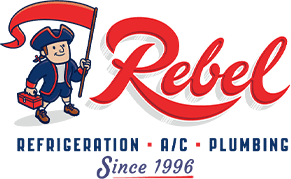While most homeowners are aware of the benefits of having an insulated attic or walls, there are many who aren’t aware about the benefits of insulating their plumbing pipes. When you insulate your home’s water pipes, there are several benefits including lower monthly energy bills.
In this blog post, we'll explore how you and your home can benefit from insulated plumbing so you can make an informative decision on whether it is worth it for you.
1. Insulated pipes retain heat better
One of the best reasons to insulate your plumbing pipes is that it can improve heat retention. According to the U.S. Department of Energy, insulated plumbing pipes can reduce heat loss by 2°F to 4°F.
At first glance, this doesn't seem to be a lot. However, your skin will definitely notice the difference. More importantly, this will allow you to lower the setting of your water heater's thermostat. When you lower the settings from 140ºF to 120ºF, you'll be able to minimize mineral build up and corrosion in your pipes.
2. Insulated water pipes are more effective in controlling moisture
Insulation is for both hot and cold water pipes. In areas with a high humidity climate, insulated pipes can prevent condensation from accumulating on cold water pipes. This is especially useful during the warm months.
It's important to note that when condensation collects on water pipes, it can cause water damage, mold growth, poor indoor air quality, and higher humidity levels.
3. Insulation can prevent freezing
Even though the winter months in Las Vegas are not as extreme as other locations in the United States, cold temperatures can still cause pipes to freeze and even burst. The pipes that are most at risk for these problems are those in unheated areas of the home such as the attic, basement, and garage.
When you insulate your plumbing pipes, it prevents the transfer of heat to the freezing cold air around them which can cause freezing.
What are the common types of insulation?
Hardware stores offer various types of pipe insulation. However, the most common ones include the following:
- Foil and foam insulation - Characterized by a thin foam backed by aluminum foil and is self-adhesive.
- Tubular polyethylene foam - Comes in pre-slit tubes that is easy to install because of its self-sealing features.
- Tubular rubber insulation - This material can expand and contract as the temperature changes. Unlike tubular polyethylene foam, you can also install it over heat cables and heat tapes.
Final Thoughts
It's amazing how a simple home improvement project can pay off for years. From cutting down your energy expenses to protecting your home from frozen pipes and moisture issues, the decision to insulate plumbing pipes appears to be a wise one because of these huge benefits.
While you can install insulation by yourself, you might find it difficult to insulate hard-to-reach sections of your pipes. This is where experienced plumbers come in - they can ensure all your plumbing pipes are properly insulated for best results.
So if you're ready to have your water pipes insulated by a professional or need assistance with any plumbing issue, simply contact us at Rebel Refrigeration and our experts will be ready to assist you! Give us a call at (702) 766-9436 or contact us here.


